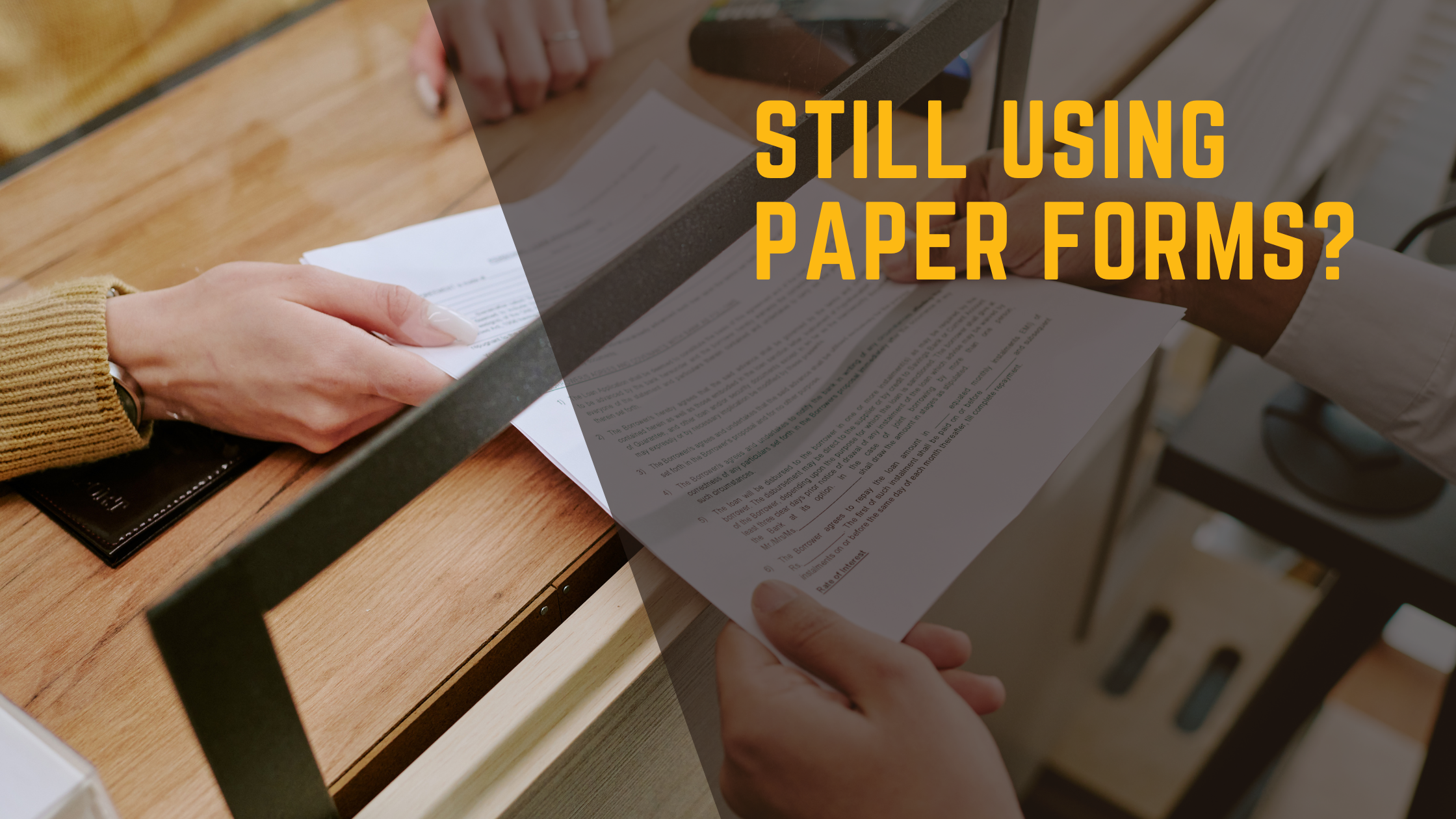Picture this: It's the start of business on January 31, the last day to renew annual pet licenses. At city hall, a line is already forming at the clerk's window. Harried pet owners clutch crumpled rabies certificates and partially filled forms, eager to get on with their day. Behind the counter, municipal staff brace themselves for a day of collecting forms, deciphering handwriting, explaining regulations, and fielding phone calls.
Sound familiar? Many small and mid-sized municipalities still process most licenses and permits on paper. But the ICMA encourages local governments to move away from paper-based processes whenever possible, highlighting that digital tools can make services faster, easier to manage, and more accessible for residents.
And that last-minute renewal scramble? That doesn’t have to be part of your team’s routine anymore.
The Hidden Costs of Paper Processing
For decades, local governments have asked residents to submit paper applications with cash or checks for licenses and permits. This approach seems straightforward, but it creates cascading inefficiencies that affect everyone.
For staff, there’s manual data entry and seasonal bottlenecks made worse by phones ringing off the hook. Then there’s the frustrating problem of lost or misfiled paperwork that requires time-consuming searches.
For residents, incomplete submissions trigger delays and frustration, and office-hour-only processing conflicts with work schedules. Any unclear requirements can lead to wasted trips and potential late fees. Lost applications mean starting over.
Meanwhile, missed renewal deadlines reduce compliance rates, manual processes increase the risk of data errors, paper storage requires physical space and careful organization, and revenue collection becomes less predictable.
The good news? Licensing is a repeatable, standardized process, which makes it ideal for automation.
Union Beach: A Small Town Tackles a Big Problem
Union Beach, New Jersey, population 5,562, was caught in this same yearly cycle. Municipal Clerk Anne Marie Friscia knew there had to be a better approach.
In 2022, Union Beach implemented a digital dog licensing system. The transition took approximately three months from decision to launch, including staff training and public communication.
The new process works like this:
- Residents access the application online, any time of day
- Smart form validation checks for required information before submission
- Applicants can upload rabies certificates directly
- Approved licenses generate instantly and arrive via email
The Results
Since moving to digital licensing, Union Beach has seen:
- 100% of applications submitted complete and accurate
- Zero lost paperwork incidents
- Instant license processing upon approval
- Consistent revenue collection with clear audit trails
- Dramatic reduction in phone calls during peak season
"The Dog License module has saved employees and constituents so much time," according to Ms. Friscia.
What About the Challenges?
Digital transformation isn't without hurdles. Here are common concerns and how municipalities address them:
"What about residents without internet access?" Most towns maintain a hybrid approach during transition. Staff can process applications on behalf of residents, or computers in public areas let residents get hands-on help. Over time, adoption typically exceeds 85-90%.
"Our staff isn't tech-savvy." Modern government software is designed for ease of use, not IT expertise. Training typically takes a few hours, and ongoing support helps teams troubleshoot issues.
"We don't have budget for new systems." Consider the cost of staff time. If each paper application takes 7 minutes to process manually, and you process 500 licenses annually, that's 58 hours of staff time (nearly $1,500 at $25/hour). Digital systems often pay for themselves within 18-24 months through time savings and improved compliance rates.
"Change is disruptive." True, but strategic timing minimizes disruption. Many municipalities launch new systems right after peak season, giving everyone months to adjust before the next rush.
Beyond Pet Licenses
The same principles apply to virtually any licensing process. Newark, New Jersey adopted digital marriage license processing and reclaimed 36 hours of staff time per month. Average appointment times dropped from 30 minutes to 15 minutes, letting the city serve more couples without adding staff.
Business permits, event applications, parking permits, and vendor licenses all follow similar patterns. They require standard information, have predictable workflows, and generate revenue that needs tracking. Each represents an opportunity to reduce administrative burden.
Is Digital Licensing Right for Your Municipality?
Before investing in a government management platform, consider these questions:
- How many hours per month does your team spend on manual data entry?
- What percentage of applications are incomplete on first submission?
- How many phone calls does your office field about licensing or vital records during peak season?
- What's your current compliance rate, and how much revenue are you missing from non-renewals?
- How much physical storage space do paper records consume?
If your answers reveal significant time drain, frequent errors, or revenue loss, automation likely makes sense.
Getting Started
Union Beach's experience offers a roadmap. Start with one license type that has high volume and clear processes. Train staff thoroughly. Communicate changes to residents early and often. Maintain support options for those who need help with technology.
Most importantly, measure results. Track application completion rates, processing time, staff hours saved, and resident feedback. Data helps you refine the process and make the case for expanding digital services.
The January rush doesn't have to be chaos. With the right tools and approach, licensing can become one of your smoothest operations.
Want to learn more? Explore GovPilot case studies to see how you can simplify and streamline your local government operations.





